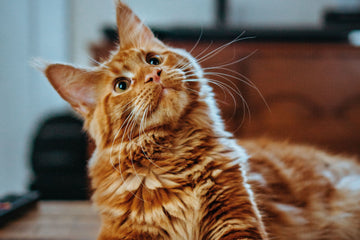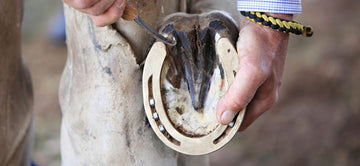Caring for your cat’s skin and managing wounds is an essential part of responsible pet ownership. Cats, whether indoor or outdoor, are prone to skin irritations, cuts, and scratches that need timely attention, especially in the affected area. That means that finding the best spray for cat wounds is critical for keeping your furry friend healthy and happy.
In this comprehensive guide, we’ll explore the importance of feline wound care, how to choose the best wound spray for cats, and tips on managing itchy skin and wounds.
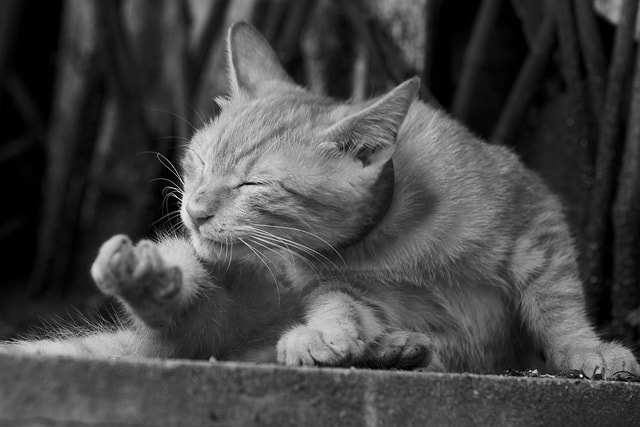
Understanding Feline Wound Care
Cats can develop skin irritations, scratches, and wounds from a variety of sources—scratches from fights, accidents during play, or even cuts from sharp objects. Without proper care, these wounds can become infected or worsen, leading to pain and complications.
Using products that are completely safe for cats ensures that their wounds are treated without causing additional harm.
Feline wound care involves several key aspects:
-
Promoting healing: Supporting the body’s natural ability to repair damaged tissue with the help of a healing aid.
-
Preventing infection: Keeping bacteria and pathogens at bay to avoid complications.
-
Reducing pain and discomfort: Helping soothe the wound to ensure your cat is as comfortable as possible.
A healthy tissue environment is crucial to ensure that wounds heal properly. By providing the right care and using an effective wound spray for pets, you can significantly speed up the healing process and prevent infections that could lead to more serious health issues. For more detailed guidelines on feline wound care, check out the American Association of Feline Practitioners.
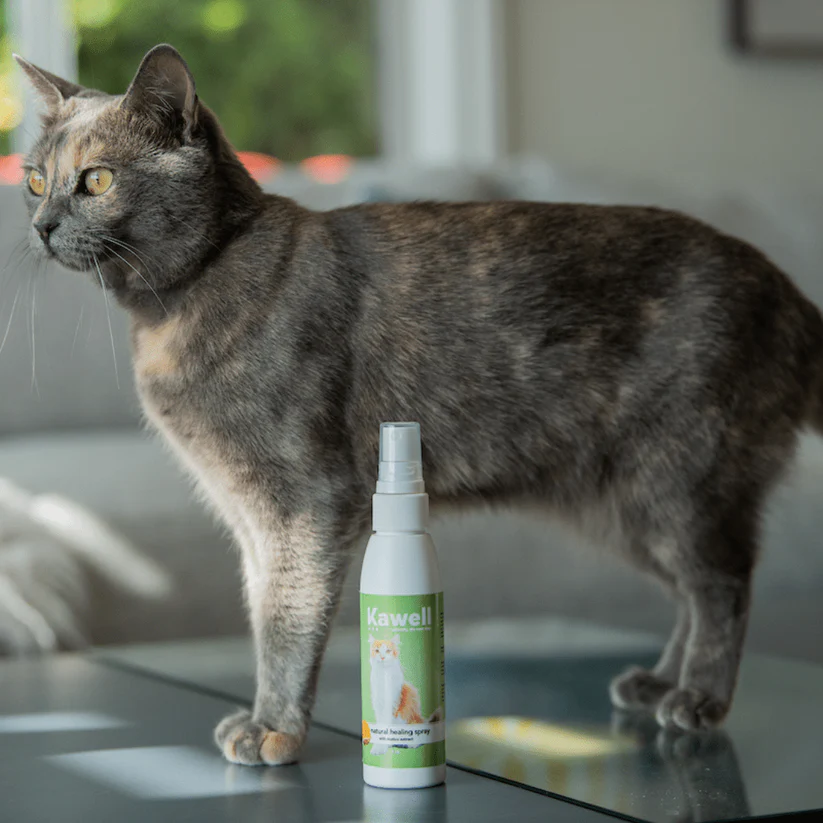
Choosing the Right Wound Spray for Cats
When selecting a wound spray for your cat, it’s important to choose products that are specifically designed for feline skin care. Cats have sensitive skin, and using the wrong products can lead to irritation or delayed healing, making it crucial to choose sprays that prevent infection.
Factors to Consider:
-
Healing promotion: Look for sprays that actively encourage tissue regeneration and promote healing.
Factors to Consider:
-
Healing promotion: Look for sprays that actively encourage tissue regeneration and wound closure.
-
Infection prevention: Choose a product with antibacterial or antimicrobial properties to reduce the risk of infections.
-
pH-balanced: A pH-balanced formula ensures that the spray won’t disrupt your cat’s natural skin barrier, which is essential for healing.
-
Safe ingredients: Always choose products that are labeled safe for cats. Avoid harsh chemicals or ingredients that may be toxic if ingested through licking.
-
Natural ingredients: Some sprays incorporate natural soothing ingredients like eucalyptus oil, which can help reduce inflammation and itching.
-
Pain reduction: Choose a product that helps reduce pain associated with cuts and skin irritations.
Eucalyptus oil is a common natural ingredient in pet wound sprays due to its ability to soothe and calm irritated skin. Its antibacterial properties also support healing by reducing the risk of infection. However, ensure that the product is safe and approved for cats, as not all essential oils are feline-friendly.
Top Considerations for a Feline Wound Spray:
-
Look for a product that’s veterinarian-formulated and approved for feline use.
-
Read labels carefully to ensure the spray is safe, non-toxic, and manufactured in the USA to meet high safety standards.
For more on safe ingredients in pet care, refer to the Pet Poison Helpline.

Managing Itchy Skin and Wounds in Cats
Itchy skin can be a major problem for cats, especially when it leads to excessive scratching that worsens existing wounds and hinders skin repair. Cats may develop itchy skin due to allergies, insect bites, or infections. If left untreated, itchy skin can result in hot spots—areas of inflamed, raw skin that are painful and slow to heal.
How Wound Sprays Help:
-
Soothing and calming: Many wound sprays are designed to reduce itching, which can help prevent your cat from scratching and further irritating the wound.
-
Hot spot treatment: Wound sprays can also target areas affected by hot spots, speeding up the healing process by reducing inflammation and soothing the skin.
Regular grooming and hygiene can also help manage itchy skin and prevent wounds from occurring in the first place. By keeping your cat’s coat clean and monitoring their skin regularly, you can spot problems early and apply treatment before they escalate.
For a deeper understanding of feline skin conditions, visit Cornell University’s College of Veterinary Medicine.
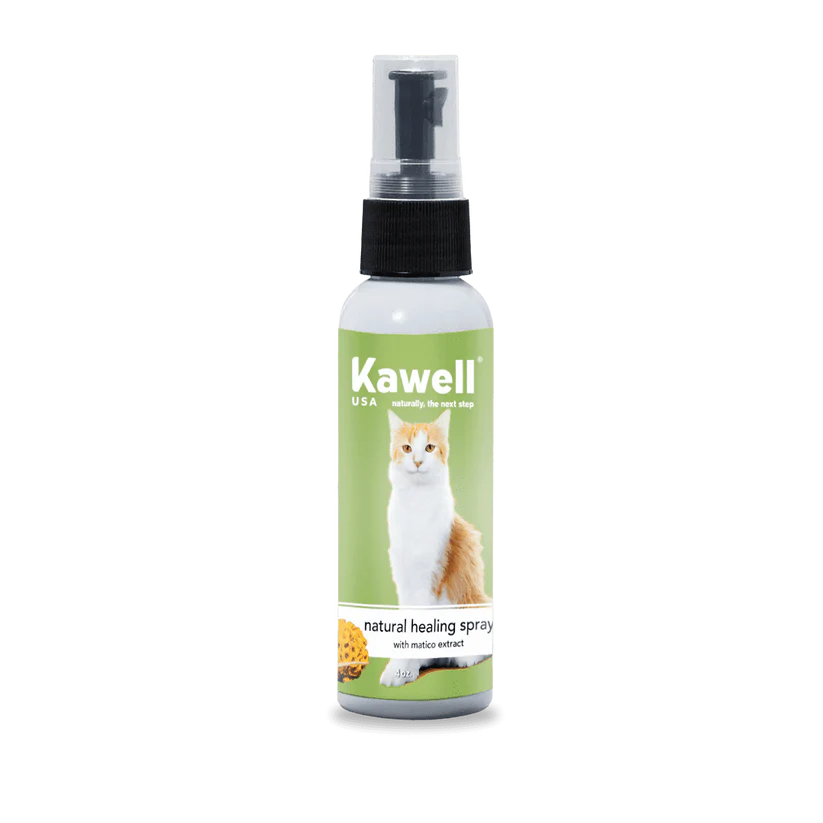
Top Wound Sprays for Cats
When it comes to wound care, it’s important to choose the right spray that acts as a healing aid and prevents infections. Here are some top picks for the best sprays for cat wounds:
1. Vetericyn Plus Antimicrobial Wound & Skin Care Spray
-
Key Features: Promotes healing and reduces inflammation, as well as antimicrobial properties.
-
Safe for Cats: pH-balanced, safe for use on cats of all ages.
-
Why It’s Great: This spray is specifically designed to clean wounds, hot spots, and skin irritations in cats, helping speed up recovery while preventing infections.
2. Kawell USA Dragon's Blood Healing Spray for Pets
-
Key Features: Made with natural ingredients, including Dragon’s Blood, known for its healing and anti-inflammatory properties.
-
Safe for Cats: Non-toxic, natural formula. You can also use Dragon's Blood Spray for Dogs.
-
Why It’s Great: Kawell USA’s healing spray is veterinarian-approved and harnesses the power of Dragon’s Blood, an ingredient traditionally used for wound care due to its antibacterial and soothing effects.
3. Banixx Pet Care Spray
-
Key Features: Antibacterial, antifungal, fast-acting.
-
Safe for Cats: Free of steroids, antibiotics, and fragrances, making it safe for cats.
-
Why It’s Great: Banixx is effective against common skin issues such as scratches, fungal infections, and wounds, providing relief and promoting rapid healing.
For more information on recommended feline wound care products, see Veterinary Partner.
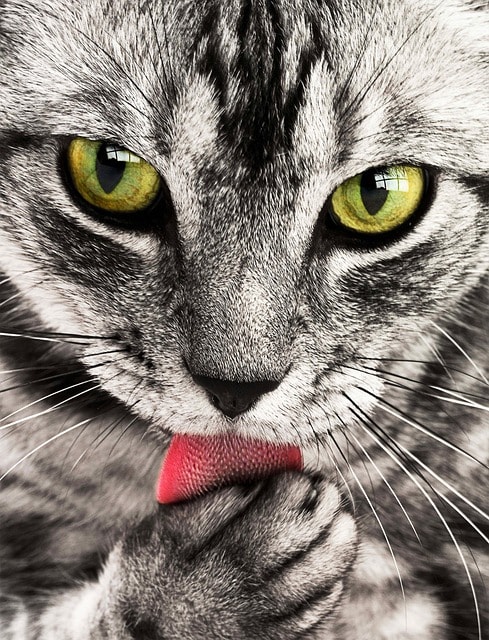
Best Practices for Feline Wound Care
Proper wound care is essential for ensuring your cat heals quickly and without complications. Before applying any wound spray, gently clean the affected area with warm water or a saline solution. Using a wound spray is just one part of a comprehensive care routine. Here are the best practices for keeping your cat’s wounds clean and promoting healing:
1. Clean and Disinfect the Area
Before applying any wound spray, gently clean the wound with warm water or a saline solution. Disinfect the area using a mild, vet-recommended antiseptic to remove any bacteria or debris.
2. Apply the Wound Spray
After cleaning the wound, follow the instructions on the wound spray label. Most sprays should be applied 2-3 times daily to keep the wound moist and encourage healing. Be sure to choose a spray that is designed specifically for cats to avoid adverse reactions.
3. Monitor the Wound
Check the wound regularly for signs of infection, such as increased redness, swelling, or discharge. If the wound doesn’t show signs of improvement within a few days or appears to worsen, consult your veterinarian.
4. Keep Your Cat Comfortable
To promote faster healing, make sure your cat is in a stress-free environment. Prevent them from licking or scratching the wound, as this can slow the healing process. You might need to use a cone or an e-collar temporarily to prevent interference with the wound.
5. Consult Your Veterinarian
For deeper wounds, post-surgical sites, or ongoing skin conditions, always consult with your veterinarian before applying any treatment. They can provide tailored advice on wound management, infection prevention, and the best products to use for your cat’s specific condition.
For more information on post-surgical care, check out the American Animal Hospital Association.
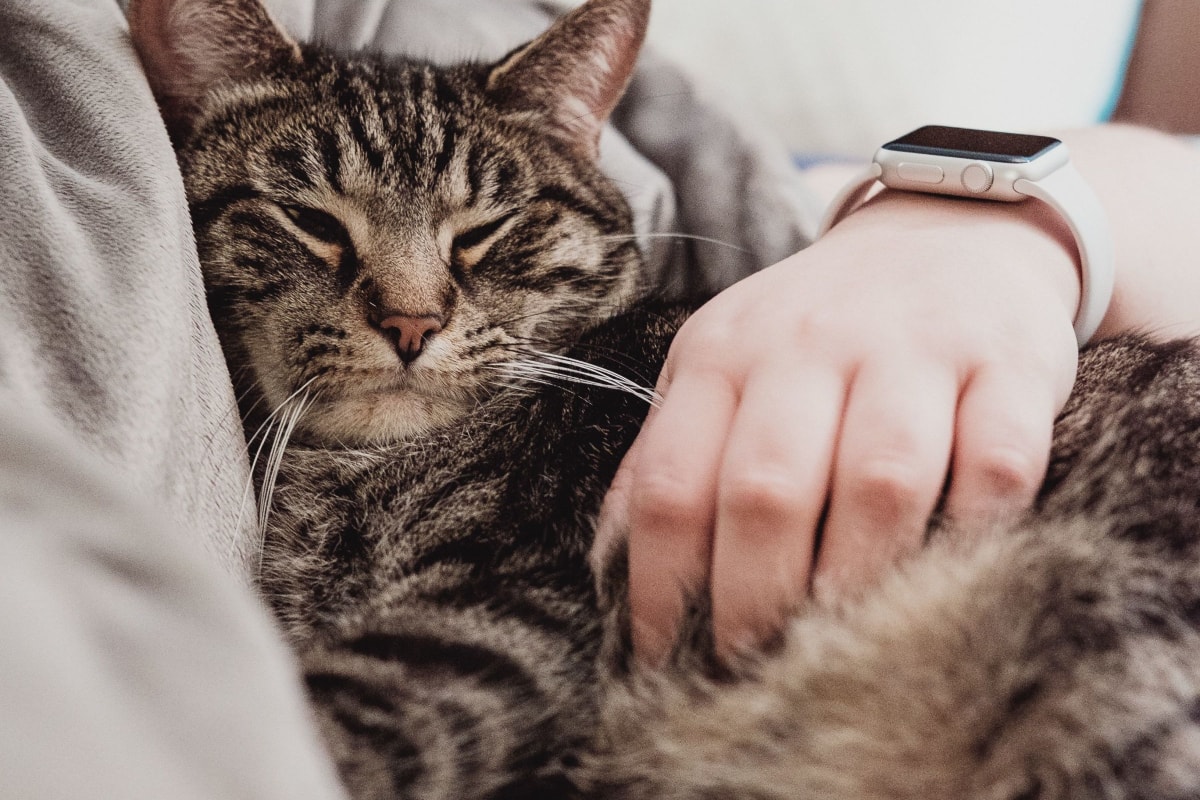
Frequently Asked Questions (FAQ)
1. What can you spray on a cat wound?
You can use a veterinarian-recommended antiseptic spray specifically formulated for pets. These sprays often contain ingredients like chlorhexidine or iodine, which help disinfect the wound without being harmful to cats. Always consult your veterinarian before applying any product to ensure it is safe and appropriate for your cat's specific wound.
2. What is the fastest way to heal a wound on a cat?
The fastest way to heal a wound on a cat includes:
-
Keep the Wound Clean: Gently clean the wound with a mild antiseptic solution as directed by your veterinarian.
-
Prevent Licking: Use an Elizabethan collar (cone) to prevent your cat from licking or biting the wound, which can cause infection.
-
Follow Veterinary Advice: Seek veterinary care for serious wounds, and follow prescribed treatments or medications.
-
Monitor for Infection: Keep an eye on the wound for any signs of infection, such as redness, swelling, or discharge.
3. What can I cover my cat's wound with?
You can cover your cat's wound with a non-stick sterile bandage or dressing, which helps protect it from dirt and further injury. Make sure the bandage is not too tight, as it could restrict blood flow. Consult your veterinarian for guidance on how to properly bandage the wound.
4. Is there an antiseptic spray for cats?
Yes, there are antiseptic sprays specifically formulated for cats and other pets. These sprays are designed to be safe for animals and can help disinfect minor wounds. Look for products that are labeled safe for use on pets and consult your veterinarian for recommendations.
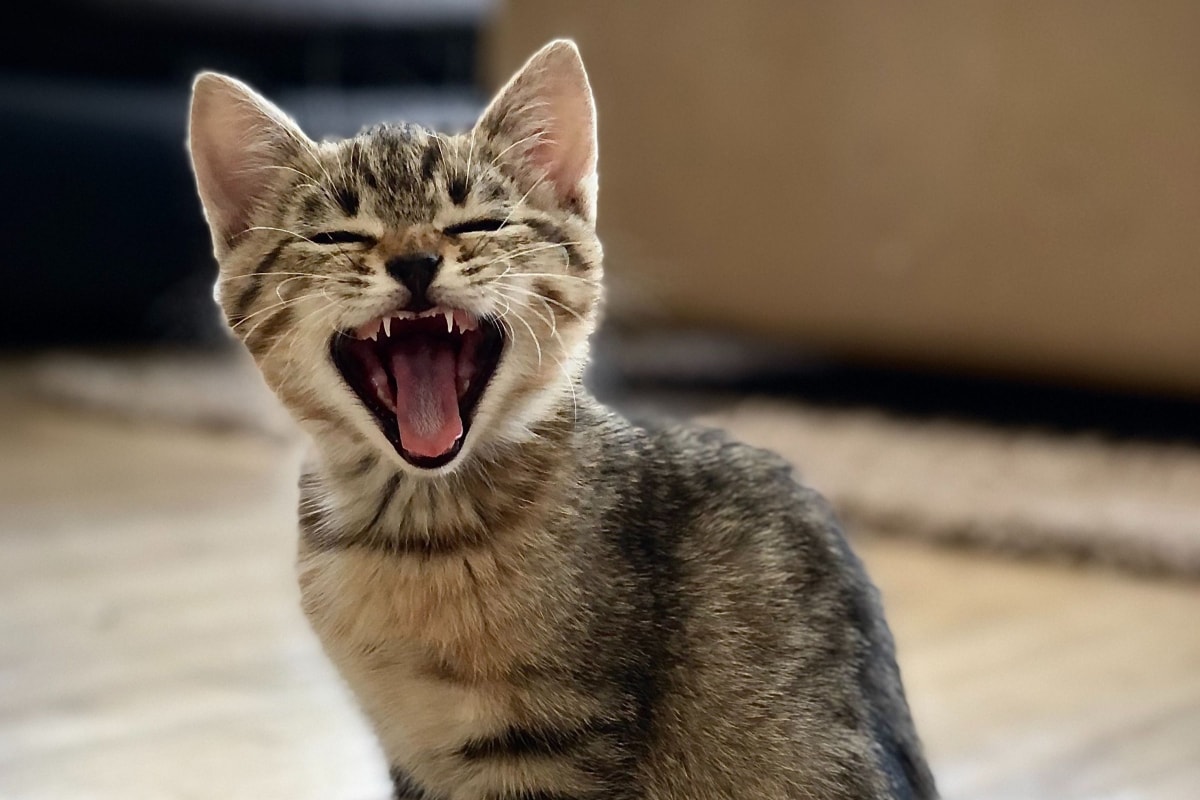
The Best Spray for Cat Wounds Conclusion
Feline wound care is an essential aspect of keeping your cat healthy and happy. Whether your cat has a minor cut, itchy skin, or post-surgical wound, using the right wound spray that is completely safe can make all the difference in promoting healing and preventing infection.
By selecting safe, veterinarian-formulated products and following best practices in wound care, you’ll help ensure that your cat recovers quickly and comfortably.
When choosing a wound spray, prioritize those that are pH-balanced, safe for felines, and enriched with healing ingredients like eucalyptus oil or Dragon’s Blood. Remember to consult with your vet for any significant wounds or if you’re unsure about which product is right for your cat.

